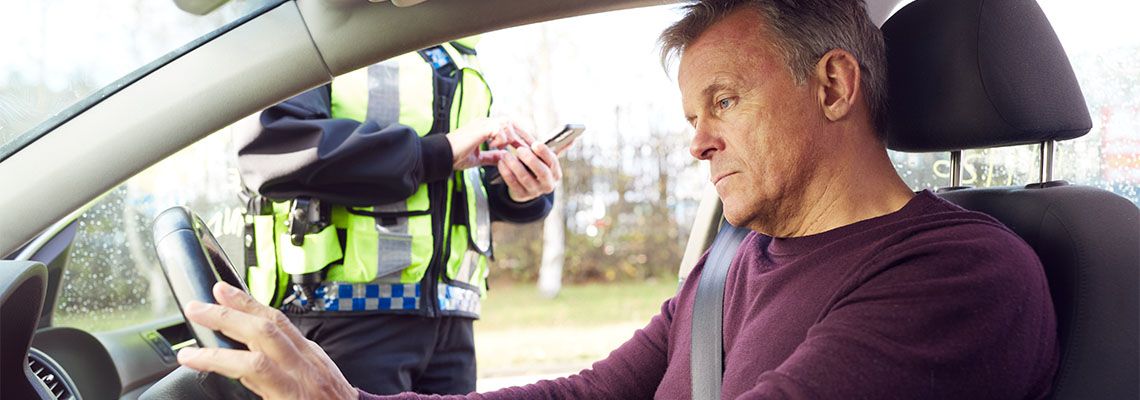
What You Need to Know About a DUI Checkpoint
Navigating the roads should always be a safe experience, not just for you but also for others. It's our responsibility as drivers to make sure we're sober and alert when behind the wheel. However, we understand that sometimes there can be circumstances that aren't clear-cut. Our attorney at the Moreland Law Firm in Nashville, Tennessee, is here to guide you through an important topic that can often be misunderstood — DUI checkpoints.
DUI checkpoints, or sobriety checkpoints, might seem intimidating at first, but having the right knowledge can make all the difference. Knowing what they are, what your rights are during these checkpoints, and how they operate in Tennessee can make the process less daunting and more understandable.
If you have any questions or concerns that require immediate attention, contact our criminal defense firm in Nashville, Tennessee, to schedule a free consultation with a knowledgeable defense attorney. We work with clients across Franklin, Murfreesboro, Lebanon, Columbia, Dickson, and the nearby communities.
What Is a DUI Checkpoint?
28% of Tennessee driving fatalities in 2022 involved drunk driving. That's why the state takes DUI charges very seriously. One way they try to prevent accidents caused by drunk driving is through DUI checkpoints.
A DUI checkpoint is a temporary roadblock that's set up by law enforcement, aimed at checking drivers for signs of impairment due to alcohol or drugs. The primary purpose of these stops isn't to inconvenience you, but rather to deter drunk driving and keep our public roads safe. It's about identifying and apprehending those drivers who choose to put themselves and others at risk by driving while impaired.
These checkpoints are strategically located in places with high incidences of drunk driving or during times when impaired driving is more likely. Think holidays, weekends, and late nights or early mornings. These are the times when the chances of encountering intoxicated drivers are higher, thus the need for these checkpoints.
What Are My Rights at a Tennessee DUI Checkpoint?
Now, let's talk about your rights at a DUI checkpoint in Tennessee. Even though DUI checkpoints are legal in Tennessee, the Constitution still protects certain rights for drivers like you.
First and foremost, remember that you have the right to remain silent. This means that beyond providing your identification and vehicle registration, you aren't obligated to answer any further questions. If you choose to, you can politely decline any additional questions without facing legal repercussions.
Secondly, you have the right to refuse to participate in field sobriety tests (FSTs) or portable breathalyzer tests (PBTs) at a DUI checkpoint. These tests are voluntary, and it's completely within your rights not to take them. However, bear in mind that refusing a chemical test, such as a breathalyzer or blood test, after being arrested for DUI can lead to penalties like license suspension.
Lastly, be aware that you have the right to seek legal representation at any point during a DUI checkpoint. If you feel your rights have been violated or if you've been arrested for DUI, contact an experienced defense attorney immediately.
While these checkpoints may seem intimidating, you needn’t worry as long as you’re driving safely and understand your rights. Stay safe out there, and remember, we're here to help should you need any legal assistance.
How Do Tennessee DUI Checkpoints Work?
Understanding how DUI checkpoints work can help alleviate some of the stress associated with them. In Tennessee, these checkpoints are conducted by law enforcement agencies following specific guidelines and protocols. They're typically announced in advance to the public, ensuring transparency and compliance with legal requirements.
During a DUI checkpoint, officers will stop vehicles in a predetermined pattern. This could be every third or fifth vehicle, for example. This is done to avoid any appearance of bias or discrimination. The officer will have a brief interaction with you, asking about your alcohol consumption and observing any signs of impairment.
If the officer suspects you might be under the influence, they may ask you to perform field sobriety tests or submit to a breathalyzer test. As we mentioned earlier, you have the right to refuse these tests without immediate legal consequences. However, if an officer has reasonable suspicion that you're impaired, they may proceed with further investigation, which could potentially lead to a DUI arrest. Remember, the legality and effectiveness of DUI checkpoints have been the subject of debate and legal challenges in certain jurisdictions.
Address Your Questions Today
Knowledge is power, and understanding what a DUI checkpoint is, your rights during one, and how they operate can make the entire experience less intimidating.
Were you recently stopped at a DUI checkpoint? Do you have any questions about your rights or the procedure? Do you have concerns about how the checkpoint was conducted? Contact the Moreland Law Firm to schedule a free consultation with our experienced DUI defense attorney.
We're here to protect your rights and help guide you through the legal process. Don't hesitate to reach out if you need us.
